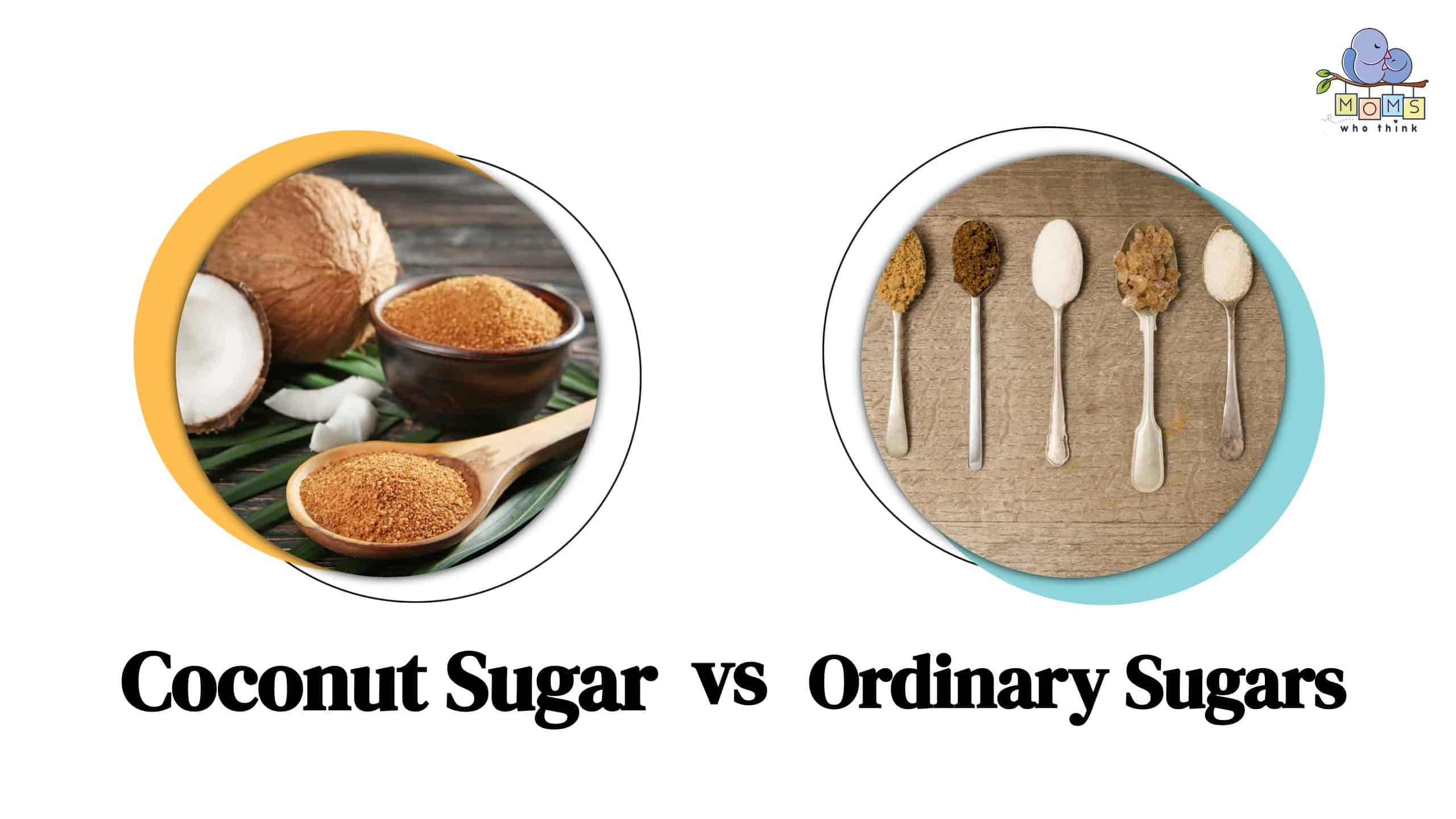From veggies to vitamins, making the right choices for your family’s health can be daunting. And deciding on the right sugar type doesn’t get any easier. There are all kinds of sugar and sugar substitutes in the grocery store aisle, making things even more confusing.
You start to wonder, which sugar is healthier, safer for children, and still tastes good? This article unravels the truth about coconut sugar vs. ordinary sugars and debunks common myths. By the time you finish reading, you’ll better understand which is healthier and the differences so you can make smarter choices for your family – it’s a game-changer!
Before we begin, let’s see why there is a…
Sugar Crisis

©antoniodiaz/Shutterstock.com
According to the American Heart Association, the recommended amount of sugar on a daily basis should be about nine teaspoons for men and six teaspoons for women. Yet the average American consumes a whopping 17 teaspoons of added sugar every day!
What about children? Well, the American Academy of Pediatrics recommends that children 2-18 years of age have a maximum of 6 teaspoons. But on an average, children consume way more than that – an average of 16 teaspoons! What does this all mean?
Well, think about it this way: One can of regular soda is about 39 grams of sugar. So if you drink a can of soda, you’re way over the daily amount for your sugar intake! But soda isn’t the place you find sugar’s addictive nature. That’s why it’s no wonder each person consumes an average of about 142 pounds of sugar per year! That’s more than TWO times what the USDA recommends!
And because sugar is in almost everything you find in the grocery store, from cookies to canned vegetables, you can see why understanding the different types of sugar can benefit your family’s overall health. But first, you need to know…
What is Sugar and Why You Need It
Sugar is a carbohydrate or carb that's naturally found in foods like grains, beans, veggies, and fruits. Think of it as a natural boost filled with vitamins, minerals, enzymes, and proteins like little health heroes. Most of these are considered complex carbs that keep you fuller longer and are slower to digest so your blood sugar levels don’t spike, giving you a steady supply of energy.
On the other hand, ordinary sugars are added sugars, such as table sugar, high-fructose corn syrup, and honey. These all fall into the category of simple carbs. These are quickly digested and can lead to rapid spikes in blood sugar levels. Why? Because they are rapidly absorbed into the bloodstream.
Coconut Sugar vs. Ordinary Sugar Myth Busters
Myth #1: Sugar is all the same. FALSE. The type of sugar matters. Some are on the higher glycemic level which means they can spike your blood sugar and wreak havoc on your body. For instance, you can experience an increase in weight gain, heart problems and cholesterol imbalance.
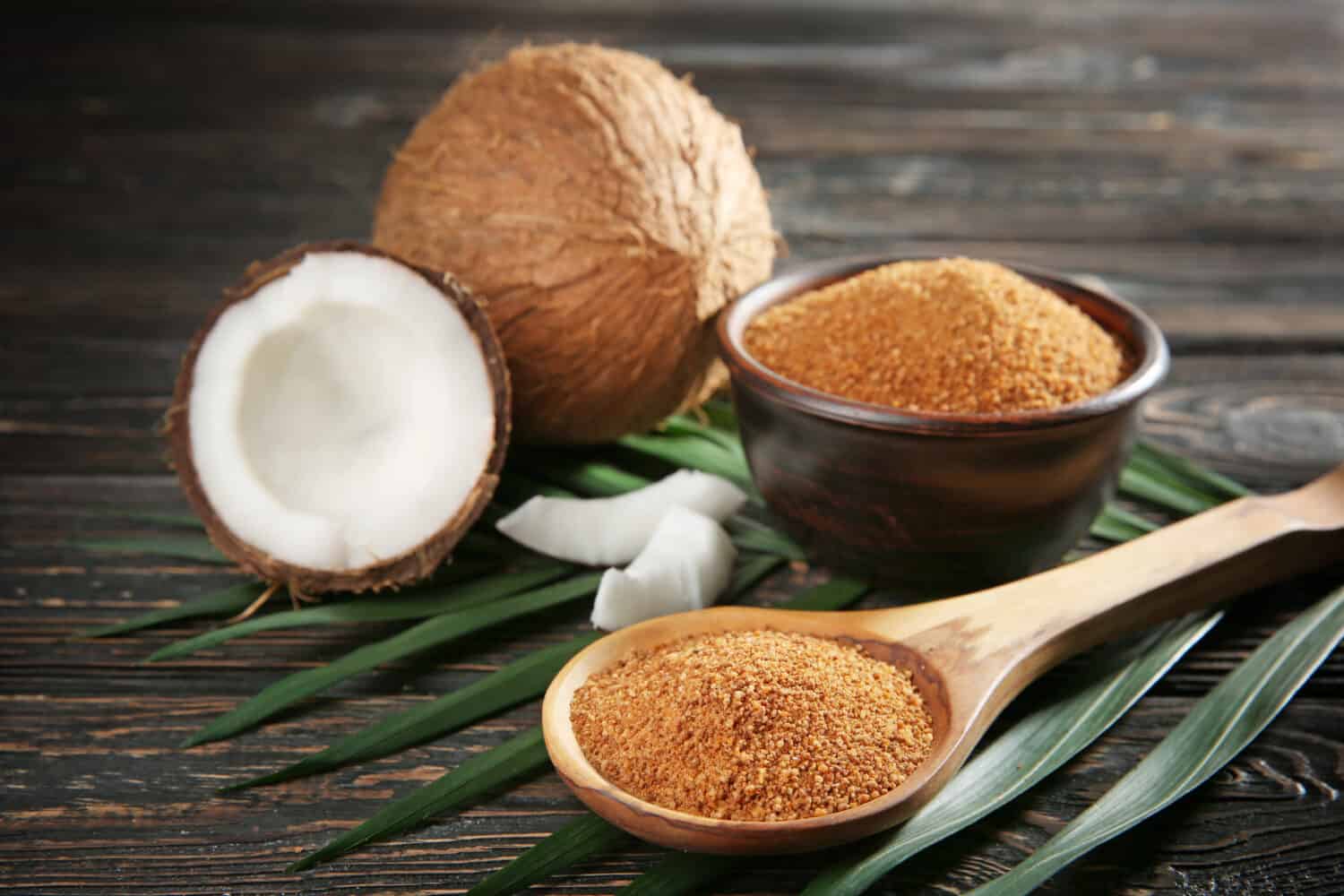
©Africa Studio/Shutterstock.com
Myth #2: Coconut sugar is sugar-free. FALSE. It’s made from the sap of the coconut palm tree – not the coconut. That’s why many are familiar with its other name, coconut palm sugar.
But does coconut sugar really stand out from other ordinary sugars?
Coconut Sugar vs. Ordinary Sugars – The Breakdown
Agave Nectar
Agave nectar is a natural liquid sweetener made from the juice of the agave cactus. It is 1.4 times sweeter than refined sugar, but does not create a sugar rush, and is much less disturbing to the body’s blood sugar levels than white sugar.
High-Fructose Corn Syrup (HFCS)
A sweetener made from corn syrup, widely used in processed foods and sugary drinks. It can rapidly spike sugar levels.
Honey
One of the oldest natural sweeteners, honey is sweeter than sugar. Depending on the plant source, honey can have a range of flavors, from dark and strongly flavored to light and mildly flavored. Raw honey contains small amounts of enzymes, minerals and vitamins. Some vegans choose not to eat honey, as it is a byproduct of bees. It can rapidly spike sugar levels.
Maple Sugar
When the sap of the sugar maple is boiled for longer than is needed, this creates maple syrup. Once most of the water has evaporated, all that is left is the solid sugar. 40 gallons of sap are required in order to make one gallon of maple syrup. It adds a pleasant flavor to foods and is great for baking. Maple sugar is about twice as sweet as standard granulated sugar, but much less refined. Be sure to buy 100% pure maple syrup, not maple-flavored corn syrup. It can rapidly spike sugar levels.
Stevia
This leafy herb has been popular for centuries among native South Americans. The extract from stevia is 100 to 300 times sweeter than white sugar. You can use it in cooking, baking and beverages and does not affect blood sugar levels and has zero calories. Stevia is available in a powder or liquid form, but be sure to get the green or brown liquids or powders, because the white and clear versions are highly refined. Taste can be bitter.
Table Sugar (Sucrose)
This is the refined white sugar commonly used in households for sweetening beverages and cooking. It comes from either sugar cane or beets, it lacks vitamins, minerals, and fiber, and thus requires extra effort from the body to digest. Can rapidly spike sugar levels.
Note: Artificial sweeteners, or sugar substitutes, are substances that are a “go-to” instead of sucrose (table sugar) to sweeten foods and beverages. It is important to understand the possible health risks involved.
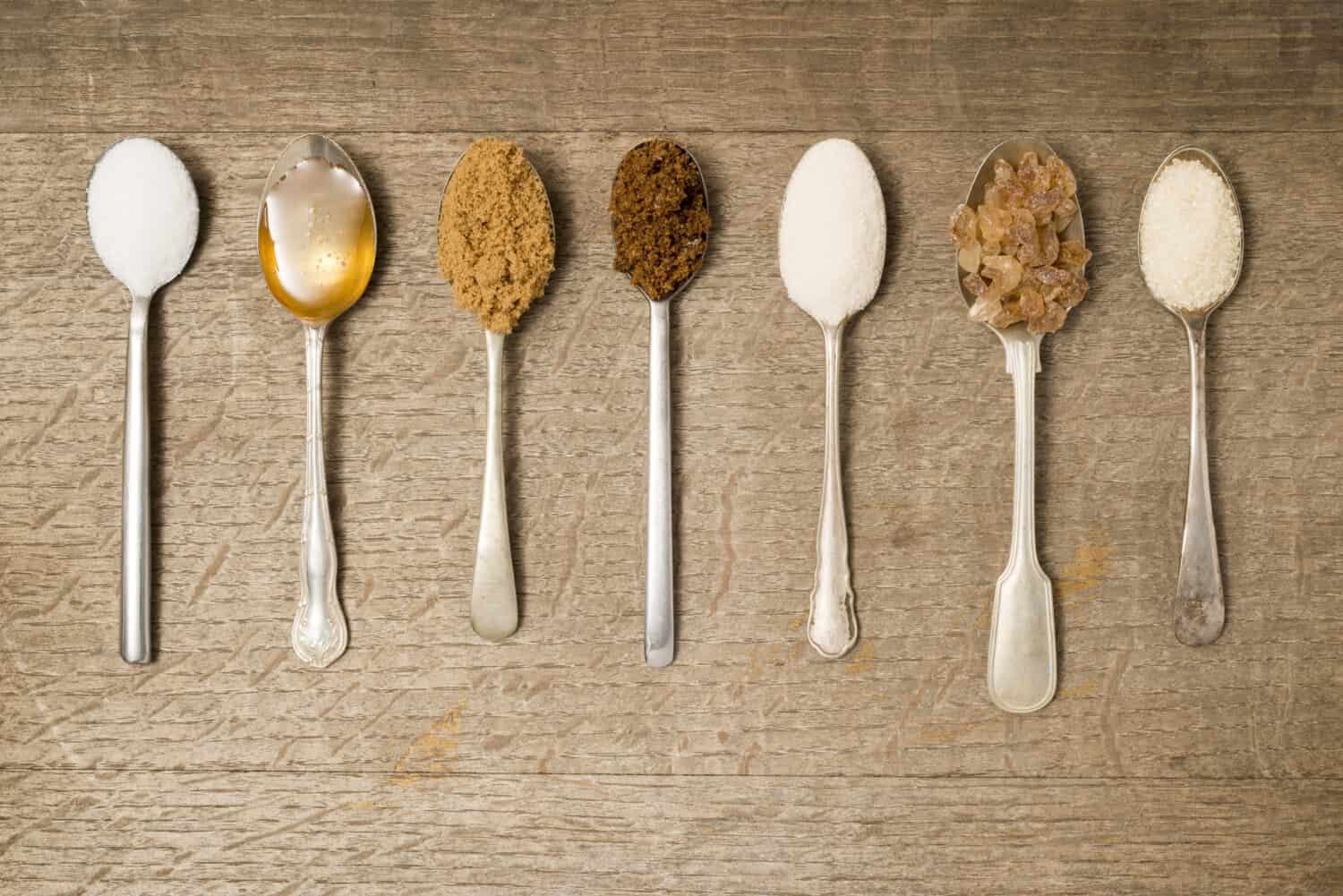
©photographyfirm/Shutterstock.com
Note: As with any dietary change, it's advisable to consult with a healthcare professional before making significant adjustments to your diet.
So What About Coconut Sugar?
There are so many ways coconut sugar can be beneficial to you. It offers an abundance of health benefits that set it apart from regular table sugar. For example…
Provides steady energy: Coconut sugar causes a slower and steadier rise in blood sugar levels, reducing the likelihood of energy crashes and sugar cravings.
Rich in nutrients: It has jam-packed with small amounts of vitamins and minerals like potassium, zinc, and iron, along with trace amounts of antioxidants and phytonutrients. All of these nutrients help your body stay healthy!
Helps with digestion: Coconut sugar contains inulin, a type of soluble fiber that can act as a prebiotic, supporting gut health and aiding digestion.
Tastes good: The flavor profile of coconut sugar is often described as caramel-like, giving it a unique and pleasant sweetness to your food and not too strong.
Kind to the earth: Coconut palm trees are highly sustainable and require less water and resources compared to other sugar-producing crops.
Vegan and Gluten-Free: Naturally vegan and gluten-free, it’s a suitable choice for individuals with dietary restrictions.
Easy to use: You can use it as a one-to-one replacement for regular sugar in most recipes, making it easy to incorporate into your cooking and baking.
And it’s minimally processed too!
Bottom Line
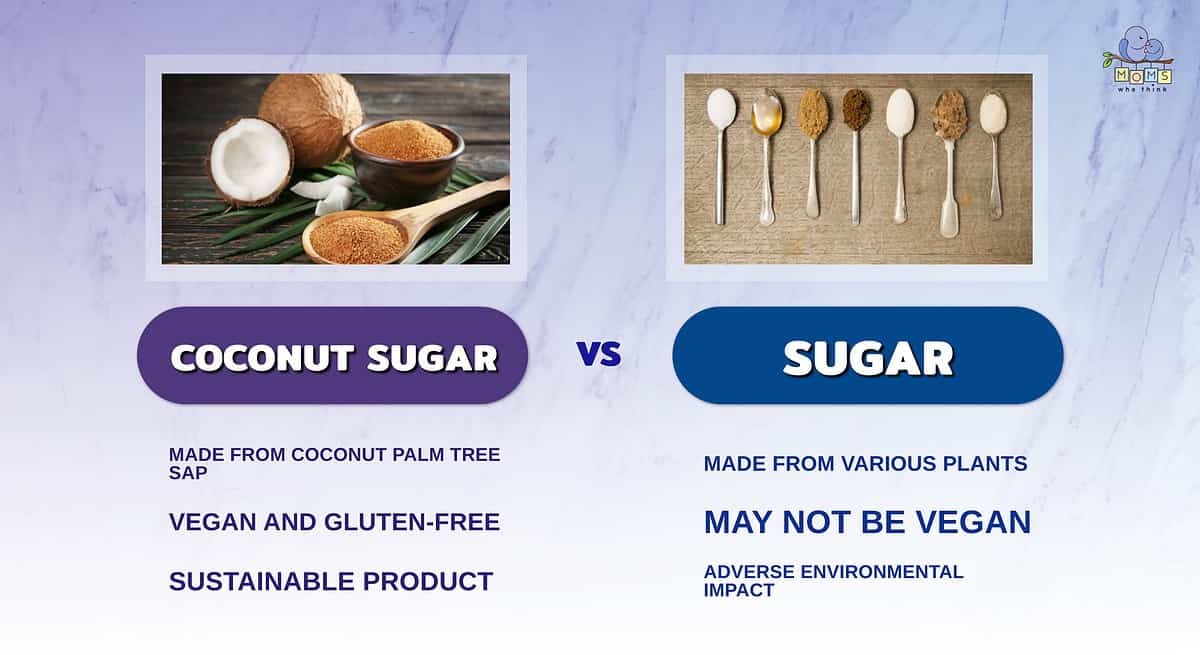
Sugar isn’t the real challenge. It’s choosing the right kind and now that you’ve got the knowledge you can make an informed decision. Coconut sugar gives you an added sweetness while avoiding the pitfalls of excessive sugar intake.
On the other hand, the ordinary sugars we discussed in this article are not necessary the villains, but rather think of them as classic companions with a caution sign. It's like having an old friend around, but not at every turn. You understand the impact ordinary sugars can have on your overall well-being. And this will help you make smarter choices that align with your health and happiness. So what will you decide between coconut sugar vs. ordinary sugars? You’ve got the reins, the knowledge and the power. So make your sweet journey an amazing, healthy and tasty one too!
Print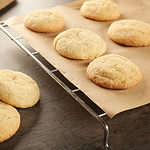
Cutler's Famous Sugar Cookies
Ingredients
- 1 1/2 cups butter (3 sticks)
- 2 cups sugar
- 3 eggs
- 2 teaspoons vanilla
- 2 teaspoons baking powder
- 1/2 teaspoon salt
- 5 cups cake flour
- 1 cup butter
- 4–5 cups powdered sugar
- Milk
- 1 teaspoon vanilla
Instructions
- Cream butter and sugar.
- Add eggs and vanilla and mix until blended well.
- Add dry ingredients and mix. To make dough easier to work with, chill before rolling.
- Roll to about 1/4 inch thick and form (cut) cookies and bake at 350 for 10 minutes.Cookies are done when top is slightly cracked and no longer looks wet. Edges may be slightly browned.
Frosting Directions
- Beat soft butter and powdered sugar together until smooth.
- Add a splash of milk and vanilla, blend well.
- Tint frosting with food color as desired. Decorate with sprinkles immediately after frosting.
